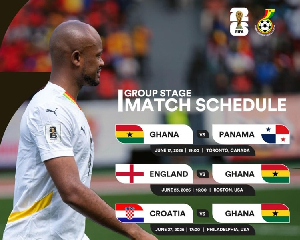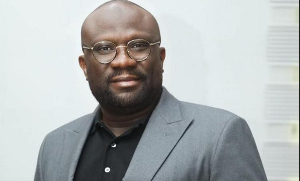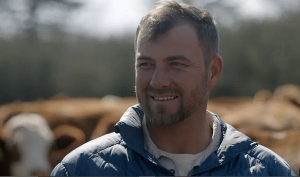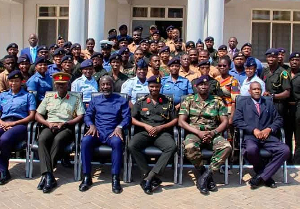His Excellency Professor Kwaku Danso-Boafo the Ghana High Commissioner to UK received a delegation from the Ghana- Royal College of Obstetricians and Gynaecologist Group (Ghana-RCOG Group) at his office in London on the 15th April 2010.
The delegation led by the Senior-Vice President of the RCOG Dr Anthony Dale Falconer and the Chairman of the Ghana-RCOG Group Dr Paul Mensah a Fellow of the College, called on the High Commissioner to introduce the liaison group. The group is made up of Ghanaian and Non-Ghanaian Fellows and Members of the RCOG and other maternal health professionals.
The RCOG encourages the study and advancement of the science and practice of obstetrics and gynaecology. This is done through its postgraduate courses and training development, the publication of clinical guidelines and reports on aspects of the specialty and service provision. The college has about 12,000 Fellows and Members of whom nearly half are based outside the UK.
The delegation used the opportunity to outline some of their objectives aimed at assisting with maternal health in Ghana. Dr Paul Mensah thanked His Excellency for making the time to meet the delegation and outlined briefly the work of the liaison group since its formation over 18 months ago and the support it has received from the International Office of the RCOG, the Liverpool School of Tropical Medicine and the personal interest shown by Dr Anthony Falconer in the group’s activities. He also outlined the work stream of the group over the coming months emphasising on its initial aim of taking Life Saving Skill (LSS) Courses in Obstetric Emergencies to Ghana as soon as funding becomes available. Dr Anthony Dale Falconer in a speech was proud of the effort and structures put in place by the Ghana government to improve and make affordable healthcare in Ghana. He compared maternal health in Ghana with other developing countries where the RCOG is currently working, and affirmed that Ghana’s current maternal health sector with the continuous support from government and groups such as the RCOG could become a model for which other developing nations could study. He assured the full support of the RCOG to the Ghana group and the government of Ghana. Dr Falconer also said the College is inviting Ghanaian Specialist trainees who are looking to broaden their experience to apply for their two-year specialist training programmes in the UK.
In his response H.E Prof Kwaku Danso-Boafo thanked the delegation for making time out of their busy schedule to set up the group aimed to support maternal health in Ghana. He assured the group of the government’s full support. Prof. Danso-Boafo who himself was a Minister for Health in 2000 said the Ghana government is serious about the health of its people and was confident about the future of healthcare in Ghana. He however encouraged the RCOG not to work in isolation to achieve their objectives but collaborate with the well established medical and health bodies in Ghana such as The Ghana College of Physicians and Surgeons.
Mr Philip Osei-Hwere, Director at Eagle Media House acting as the PR consultant for the group, also outlined work he is doing to generate publicity for the group’s activities. This he added included the development of a website for the group.
Present at the meeting were Alhaji Bawah Minister Welfare and Consular Affairs, Mrs Sena Siaw-Boateng Head of Chancery both at the Ghana High Commission UK, Dr Eugene Oteng-Ntim a member of the Ghana group.
To find out more about the Ghana-RCOG group, contact: Dr. Paul Mensah FRCOG, Chairman, Ghana-RCOG Liaison Group (paul.mensah@nhs.net) Dr. Kwabena Appiah-Sakyi MRCOG, Secretary (kasak@doctors.net.uk).
Diaspora News of Monday, 26 April 2010
Source: www.eaglemediahouse.com












